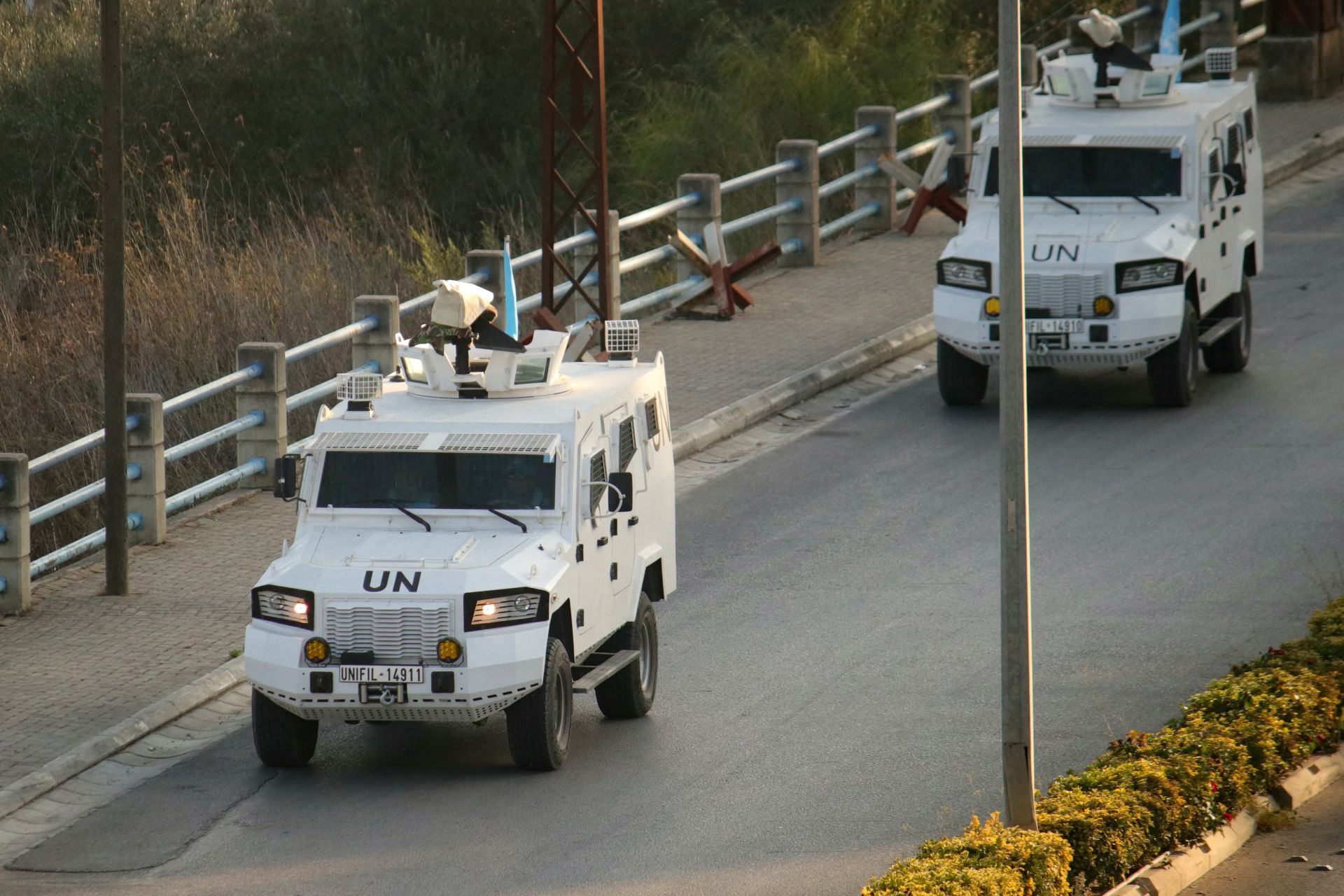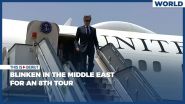- Home
- War in the Middle East
- Washington and Paris skeptical about potential ceasefire

United Nations Interim Force In Lebanon (UNIFIL) vehicles drive on a road in the southern Lebanese area of Marjayoun on October 17, 2024, amid the ongoing war between Israel and Hezbollah. ©AFP
Under Resolution 425, adopted in 1978 in response to the Israeli forces’ Litani Operation against the Palestinian Liberation Organization (PLO), international forces were deployed to southern Lebanon on March 23, 1978. These forces have remained in the region under Resolution 1701, enacted in 2006. Despite facing challenges from Israel, Palestinian factions, and Hezbollah, the United Nations Interim Forces in Lebanon (UNIFIL) has consistently fulfilled its mission, with 337 personnel reported lost as of May this year.
A UN source confirmed that UNIFIL’s presence in southern Lebanon will continue as long as Resolution 1701 remains in effect. Any new resolution is expected to reaffirm the necessity of UNIFIL's role in de-escalating tensions and ensuring stability along the Lebanese-Israeli border. A revised mandate could enhance its operational flexibility and support, making UNIFIL more effective in cooperation with the Lebanese Army, thereby ensuring both its security and the successful execution of its mission with precision.
In light of this situation, the United States remains committed to its substantial financial support for UNIFIL, contingent upon the forces effectively fulfilling their crucial role in the upcoming phase, rather than being constrained as they were in the years following the 2006 war. After that conflict, efforts were made to expand UNIFIL’s deployment and implement Resolution 1701 in practice rather than just in theory. This initiative, led by the Spanish unit, faced violent backlash when a roadside bomb targeted one of their patrols in June 2007, resulting in the deaths of six personnel. Since then, UNIFIL has encountered significant challenges in executing its missions in southern Lebanon, particularly in verifying the existence of a true buffer and demilitarized zone free from weapons and armed groups. The onset of the Al-Aqsa Flood War and the subsequent ‘Support War’ revealed that southern Lebanon has evolved into a fully integrated military network for Hezbollah, with missile launch sites and combat facilities alarmingly located near UNIFIL positions along the border.
Despite these challenges, UNIFIL remains essential in any new situation that may arise after the current conflict, whether under Resolution 1701 or a different mandate. The pressing question, however, is how to compel both the Lebanese government and Hezbollah to adhere to such directives.
Currently, there is no comprehensive Lebanese roadmap addressing this issue. The only available information suggests that Israel has declared it will negotiate the status of southern Lebanon solely under the threat of force, seeking a framework that prevents Hezbollah from rearming in the region south of the Litani River. Meanwhile, the Lebanese government lacks any tangible strategy regarding the future of this area. Control over decisions related to war and peace remains with Hezbollah, meaning that the authority to cease hostilities or continue fighting ultimately lies with them, under Iranian oversight. Consequently, no Lebanese official can overtly announce that Lebanon has unilaterally stopped firing. Additionally, no official can realistically commit to implementing Resolution 1701 or specify how it would be enforced, as this is directly linked to directives from Iran communicated to Hezbollah.
According to available information, American and French officials have expressed concerns about the Lebanese government’s lack of commitment to ceasefire discussions and the implementation of Resolution 1701. The absence of clear commitments has heightened apprehensions in France and the US that they may once again be misled by Hezbollah's tactics. A ceasefire could enable the Lebanese Army to return to positions it recently vacated along the Blue Line, allowing Hezbollah to claim that the army has effectively reestablished itself and that Resolution 1701 has been implemented from Lebanon’s standpoint. In reality, this would mirror the circumstances that followed the July 2006 war.
Read more



Comments